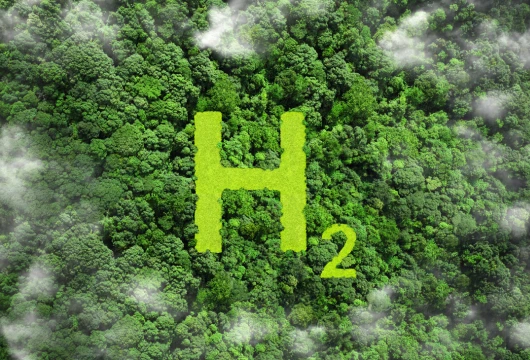Telangana Advances Green Hydrogen Manufacturing Hubs
In a significant move towards sustainable energy, Telangana’s Deputy Chief Minister, Mallu Bhatti Vikramarka, announced plans to establish green hydrogen manufacturing hubs and ramp up renewable energy capacity to 20,000 megawatts (MW) by 2030. This ambitious initiative positions Telangana as a leader in the green energy revolution and reflects the state’s commitment to combating climate change while fostering economic growth.
The announcement was made during the Australia-India Critical Minerals Research Hub Workshop hosted by IIT Hyderabad. Vikramarka reaffirmed Telangana’s resolve to spearhead advancements in renewable energy, sustainable technologies, and scientific innovation.
Pioneering Sustainable Energy Through Green Hydrogen
“Telangana’s Clean and Green Energy Policy is not just a roadmap; it’s a commitment to a sustainable future,” Vikramarka emphasized. Central to this vision is the development of green hydrogen technologies, which the Deputy Chief Minister described as “the fuel of the future.”
Green hydrogen, produced using renewable energy, offers a clean alternative to fossil fuels and holds immense potential to decarbonize key industries such as transportation, manufacturing, and power generation. By laying the groundwork for green hydrogen manufacturing hubs, Telangana aims to attract investments, foster innovation, and create a robust ecosystem for this transformative technology.
Renewable Energy Goals for 2030
Telangana’s renewable energy goals are equally impressive. The state plans to achieve 20,000 MW of renewable energy capacity by the decade’s end, leveraging solar, wind, and other sustainable energy sources. A significant component of this plan includes the integration of Battery Energy Storage Systems (BESS), which address the intermittency challenges of renewable energy and ensure a reliable power supply.
“Our renewable energy initiatives are not just about adding capacity—they are about creating a sustainable, self-reliant energy ecosystem,” Vikramarka said.
Leveraging Critical Minerals for a Green Economy
The focus on critical minerals is at the heart of Telangana’s clean energy strategy. These resources are essential for technologies like solar panels, wind turbines, and battery storage and are the backbone of the green economy.
“Critical minerals are more than industrial raw materials; they are the building blocks of the green energy revolution,” Vikramarka noted. He highlighted the importance of ethical and sustainable sourcing of these materials, underscoring the state’s commitment to environmental and social responsibility.
The Deputy Chief Minister also praised collaborative initiatives such as the Australia-India Critical Minerals Research Hub, a partnership between IIT Hyderabad and Monash University. He said these partnerships are “essential for advancing global progress in sustainable energy.”
Sustainable Energy Innovations in Telangana
Telangana has already made strides in sustainable energy, investing in cutting-edge technologies and projects redefining the energy landscape.
- Floating Solar Plants: Telangana is leveraging its water resources to develop floating solar power plants, which optimize land use while providing renewable energy.
- Smart Grids: The state is adopting innovative grid technologies to enhance the efficiency and reliability of its power distribution systems.
- Waste-to-Energy Projects: Telangana prioritizes waste-to-energy initiatives, ensures no wasted resources, and promotes a circular economy.
- Energy Storage Technologies: Advanced storage solutions are being integrated to support renewable energy projects and stabilize the grid.
Green Hydrogen Hubs: A Game-Changer
The development of green hydrogen manufacturing hubs is set to be a game-changer for Telangana. These hubs will serve as innovation centers, fostering research, development, and commercialization of hydrogen-based technologies. They will also create job opportunities, boost the local economy, and position Telangana as a global leader in the green hydrogen market.
“Green hydrogen is not just an energy source; it’s a catalyst for a sustainable and inclusive future,” Vikramarka said.
Collaborative Efforts for Global Impact
Vikramarka emphasized that achieving Telangana’s ambitious energy goals requires collaboration across sectors. Partnerships between academia, industry, and local communities are critical for driving innovation and ensuring the successful implementation of green energy projects.
“In Telangana, progress is a collaborative effort,” he said. “We are building partnerships that address global challenges while creating local solutions.”
The collaboration between IIT Hyderabad and Monash University under the Australia-India Critical Minerals Research Hub exemplifies this approach. These institutions are tackling the critical mineral supply chain challenges that underpin sustainable energy technologies by pooling resources and expertise.
A Vision for a Sustainable Future
Telangana’s push for green hydrogen and renewable energy underscores its commitment to a sustainable future. The state’s Clean and Green Energy Policy is more than just a framework; it is a call to action for governments, businesses, and citizens to embrace sustainable practices and contribute to a greener planet.
As the state works towards its 2030 goals, Telangana is setting a benchmark for other regions. Its efforts demonstrate that with vision, innovation, and collaboration, sustainable economic growth can be achieved while addressing the urgent need for climate action.
For more in-depth analysis and inspiring climate news, click here.

